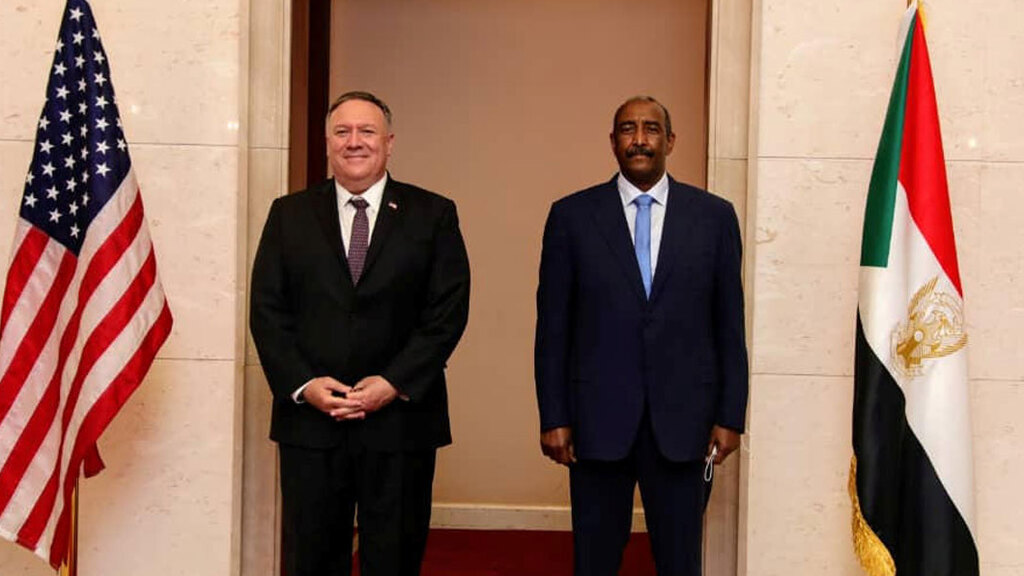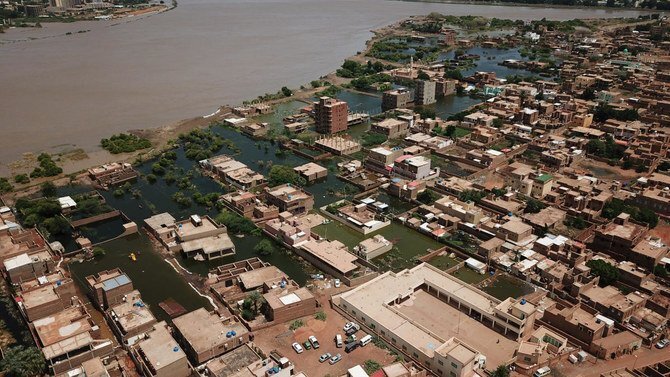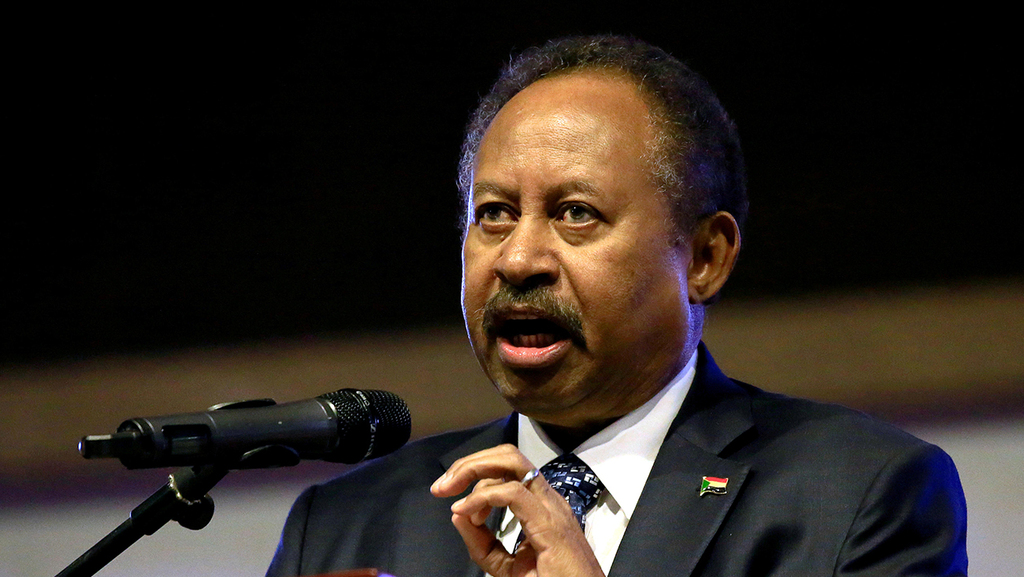Getting your Trinity Audio player ready...
U.S. pressure on Sudan to normalize ties with former adversary Israel has stirred public debate on a topic that was long taboo, exposing splits that could complicate any swift settlement of a deal.
An agreement between Sudan and Israel may have edged closer on Monday when U.S. President Donald Trump signaled that Washington would remove Khartoum from its list of state sponsors of terrorism.
4 View gallery


The Aftermath of the bombing of the U.S. embassy in Kenya in 1998 blamed in part on Sudan
(Photo: Reuters)
Military figures leading Sudan's political transition have appeared open to normalizing ties, but civilian groups including left-wing and Islamist politicians are more reluctant.
A technocratic government has so far rebuffed U.S. advances aimed at pushing Sudan to follow the lead of the United Arab Emirates and Bahrain, both of which signed agreements to establish formal ties with Israel at the White House last month.
Khartoum's caution reflects concerns that such a major foreign policy move at a time of deep economic crisis could upset the delicate balance between military and civilian factions, and even put the government at risk, two senior Sudanese government sources said.
4 View gallery


U.S. Secretary of State Mike Pompeo with General Abdel Fattah al-Burhan, Chairman of the Sovereignty Council during a visit to Khartoum in August
(Photo: Reuters)
"Taking a historic decision over relations with Israel requires a situation of economic and political stability in the country," said one of the sources.
"After the lifting of U.S. sanctions, Sudan could discuss dialogue about normalization with Israel and its benefits to Sudan, according to Sudan's interests."
Sudan, which historically has been staunchly opposed to Israel, is 18 months into a political transition after autocrat Omar al-Bashir was forced from power following popular protests.
The government faces spiraling inflation of more than 200% and has struggled to provide basic commodities and services. The coronavirus pandemic and severe flooding have added to its woes.
Removal from the terrorism list -- once Khartoum sets aside $335 million it agreed to pay to U.S. victims of militant attacks and their families -- could help ease economic pain, partly by unlocking international financing and debt relief.
Washington has offered Sudan development and humanitarian help, U.S. and Gulf-based sources said in September, after U.S. officials and military head General Abdel Fattah al-Burhan discussed the issue of Israel in September.
But while the United States has been lobbying hard for Sudan to normalize with Israel just as it finalizes Khartoum's removal from the list, Sudan's Prime Minister Abdalla Hamdok has argued the two issues should not be linked.
"It is not possible for an entire people to be forced to normalize in a week or two," acting Finance Minister Hiba Mohamed Ali told Sudanese TV on Monday.
"If it is our wish to normalize relations with Israel, we must give a suitable chance for the issue to be studied in detail."
Despite apparent support from Burhan, who met Israeli Prime Minister Benjamin Netanyahu in Uganda in February, and his military deputy Mohamed Hamdan Dagalo, who recently praised Israel's economic development, a rapid move to normalize ties could fracture the civilian coalition they share power with.
"Our view of the Zionist entity remained fixed -- that it is a racist entity hostile to all national liberation movements," said Sadiq Farouk, a Communist Party leader from the coalition that backs the government.
Hamdok has said he is not authorized to decide on ties with Israel. "With this position, Hamdok wants to avoid any decision that might lead to a split in the ruling coalition that supports the government," said Fath Alrahman Ahmed of Khartoum's Al-Neelain University.
Recognizing Israel could also trigger a backlash from Islamist factions loyal to Bashir that have sought to discredit the transition.
Still, people have been able to signal support for establishing ties publicly for the first time.
A former member of parliament, Abulgasem Bartum, says he is planning a private trip with 40 Sudanese businesspeople, sportspeople, and cultural figures to Israel as a confidence building measure next month.
In Jerusalem, Zvi Hauser, chairman of the Israeli parliament's Foreign Affairs and Defense Committee, told public broadcaster Kan Israel could help the region with science and technology and he hoped Sudan joined the "wave" of recognition.
Some younger Sudanese, less wedded to the Palestinian cause than their parents or grandparents, say they could also back the move.
"I have no objection to Sudan having normal relations with Israel if this is in the interest of the country," said Ahmed Ibrahim, a 30-year-old telecommunications company employee.
"We want jobs, health, education and a better life ... Sudan should take care of itself."



